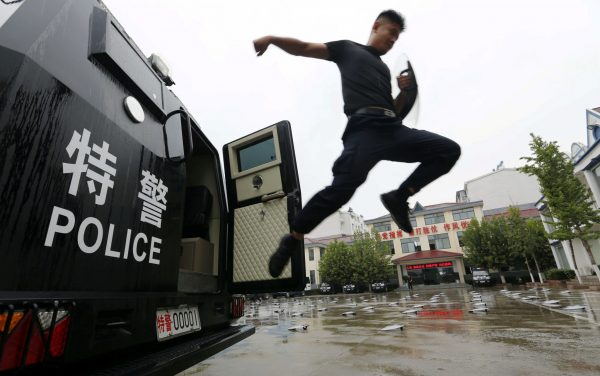While there is growing awareness that economic integration offers benefits for development and trade within the region, it is far less known or discussed that it also creates opportunities for criminal groups to develop and expand the illegal economy. At the same time, a space is opening up for China to take a larger role in facilitating cooperation between law enforcement and justice agencies to respond to transnational organised crime, particularly as some traditional supporters of the multilateral system focus on issues closer to home. Done soon and done right, Chinese leadership in this area could help align currently divergent regional security and development agendas.
Economic integration processes currently underway in the region are increasingly driven or backed by China through the Belt and Road Initiative and the Asian Infrastructure Investment Bank. A large network of transportation corridors, ports and other transformative hard infrastructure is being planned, financed and developed, with the aim of facilitating rapid and continuous movement across borders.
The ASEAN Economic Community process is also advancing initiatives in neighbouring Southeast Asia to promote connectivity and reduce restrictions at border crossings, switching from a ‘control’ to ‘facilitation’ approach. For example, the ASEAN Single Window initiative envisages a single register-moment to facilitate rapid movement and trade so businesses will not have to register or offload goods each time a border is crossed.
While these efforts will encourage and expand economic connections between China and adjacent countries and regions, they do not yet adequately account for how criminal groups can — and undoubtedly will — exploit the situation. Already, the illegal trafficking of drugs and precursor chemicals, people, money, counterfeit goods, wildlife and timber in the region amounts to a conservatively estimated value of US$100 billion per year.
China is a primary source, market and transport hub for many of these illicit activities, and cross border trafficking and criminal activity is expected to intensify as connections with the surrounding region deepen.
With the simplification and streamlining of border processes as part of the economic integration process, criminal groups will exploit new trade arrangements unless sufficient safeguards are put in place. It is well known that illicit trafficking activities often take place alongside or within licit trade flows, and use and abuse cross border infrastructure.
China will continue to remain a central driver of economic growth and development in Asia and should seize the opportunity to address accompanying crime and security challenges that come with an actively expanding two-way trade. In addition to undertaking protective measures at home — including dealing with in-country demand for contraband and the supply of illicit goods being produced and trafficked out — China can play a leadership role in countering transnational organised crime in its backyard by expanding cooperation and coordinating assistance to address gaps in capacity along vulnerable borders.
The fact is that most law enforcement and justice agencies in the region have been set up to deal with local crime and community concerns and they are not ready to deal with complex emerging challenges, or to coordinate and share information across borders. Their systems need to be recalibrated to be responsive to the range of challenges they are now faced with.
At a practical level this would mean supporting and expanding mechanisms like the United Nations Office on Drugs and Crime (UNODC) border liaison office network (which China already participates in) with other Mekong countries; collaborating with or joining the World Customs Organization–UNODC container control programme, which helps countries secure the shipping container trade in key port locations; and financing multilateral and impartial data, research and analysis, policy and strategy development and capacity building efforts.
Through proactive coordinated engagement — in conjunction with the UN and international system partners like Interpol — and the alignment of public security and economic integration agendas, China will be able to support its own prosperity and security while facilitating sustainable economic development in the region. Not doing so may well exacerbate an already difficult crime environment.
Jeremy Douglas is the UNODC Regional Representative for Southeast Asia and the Pacific based in Bangkok Thailand, and former UNODC Representative for Pakistan.
He can be followed on twitter at @jdouglasSEA.

